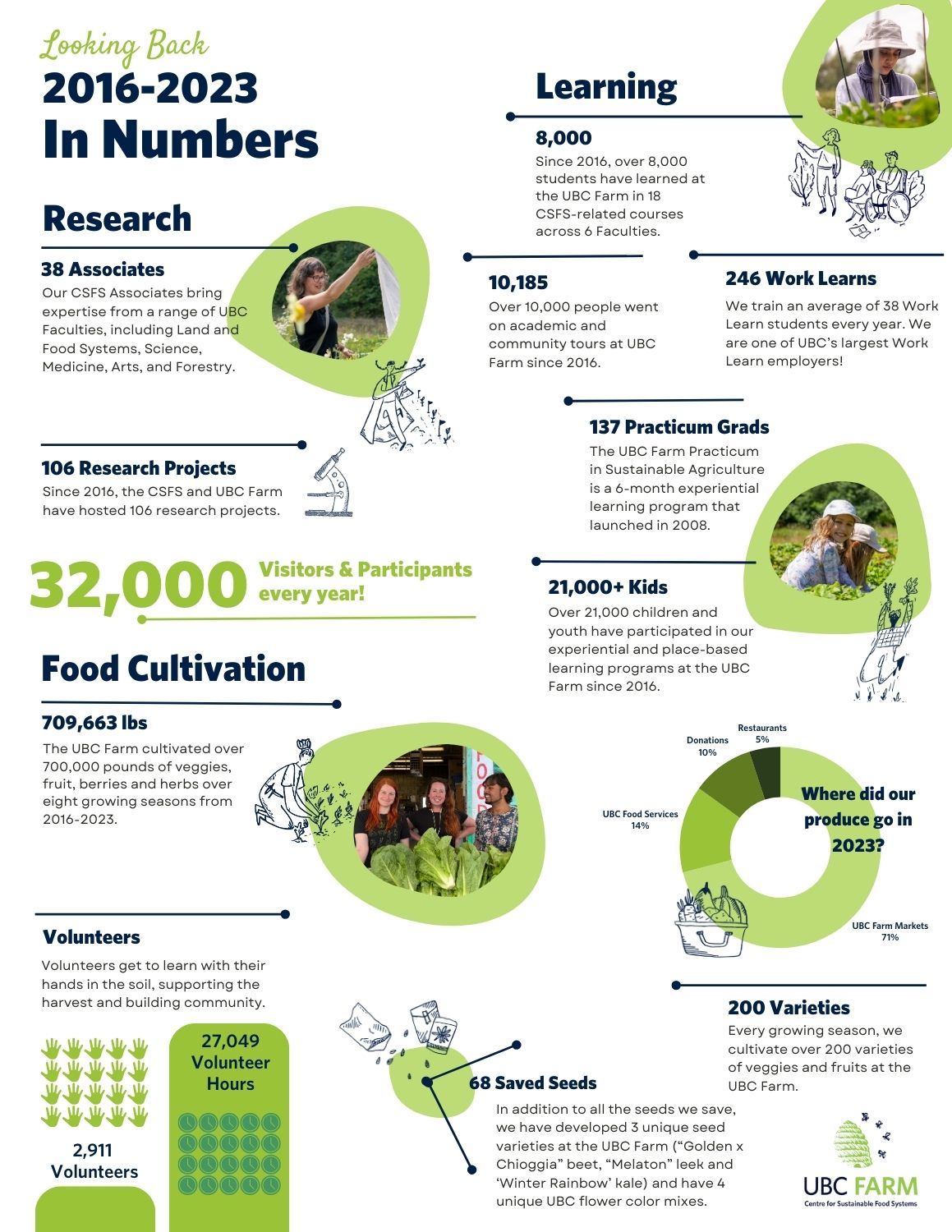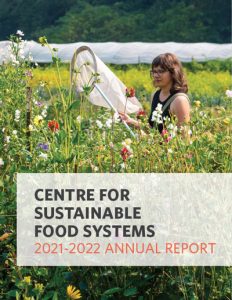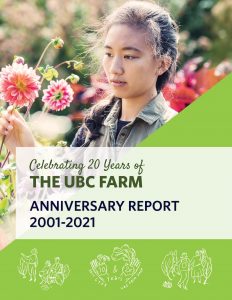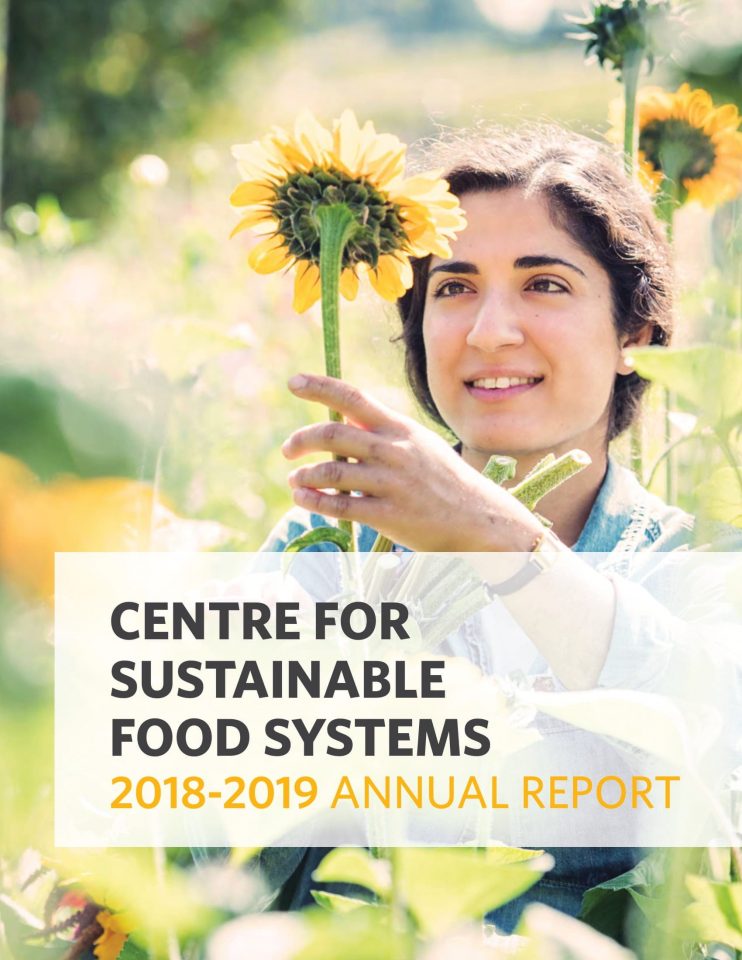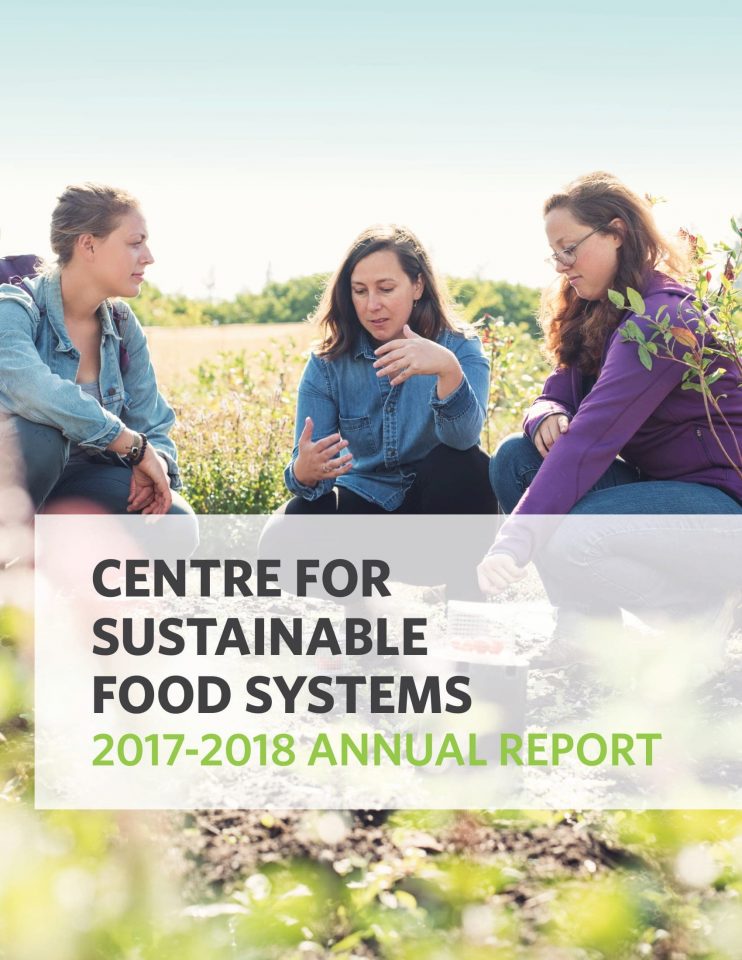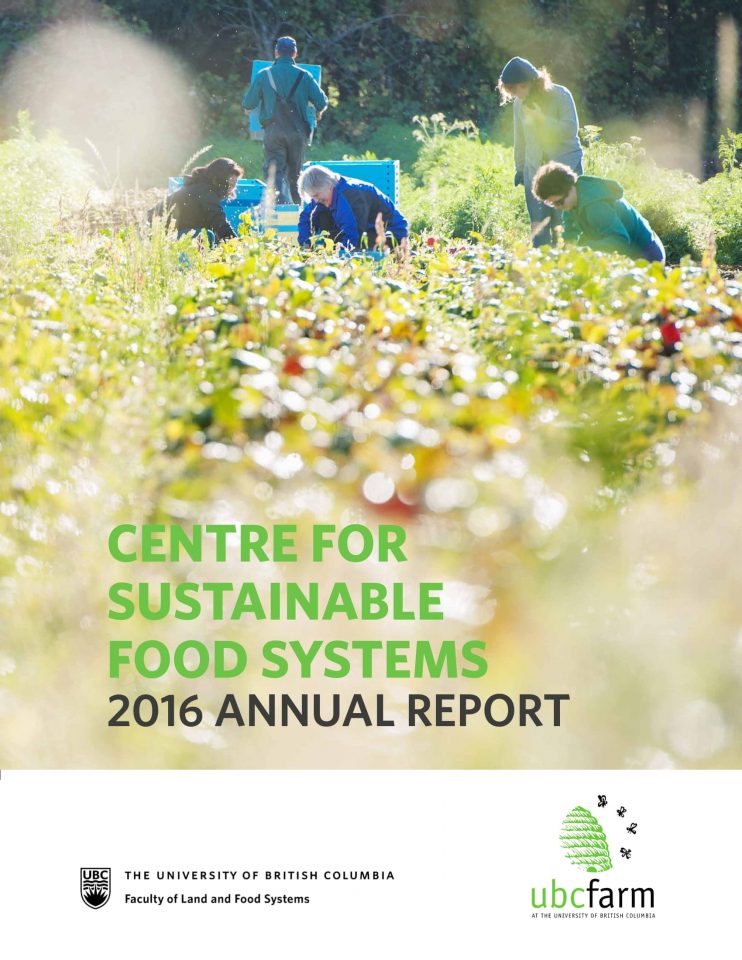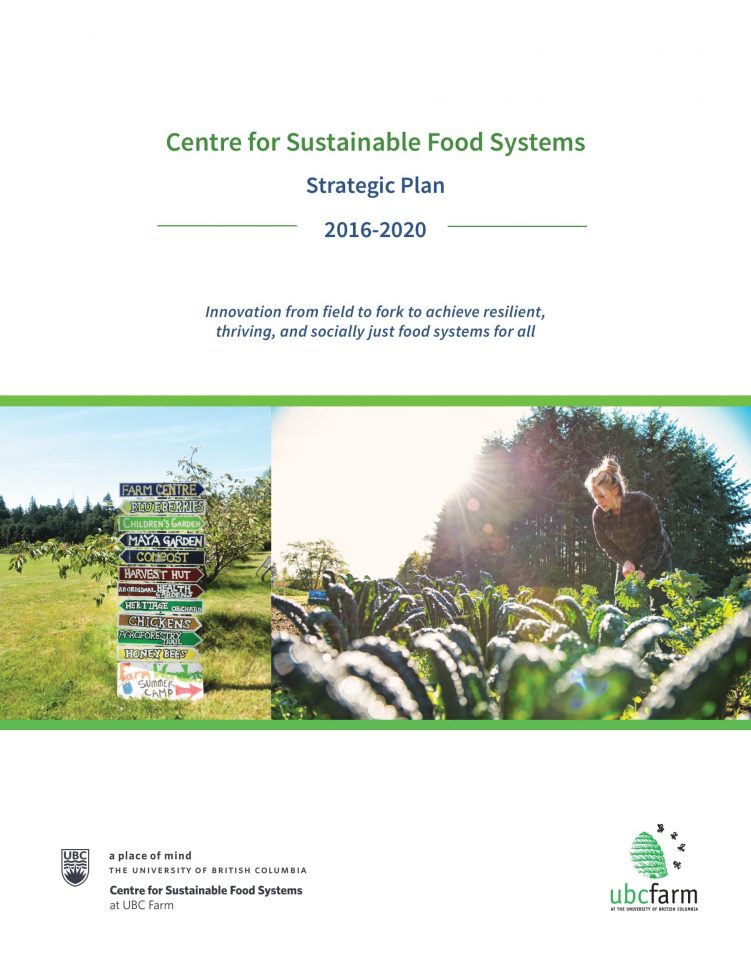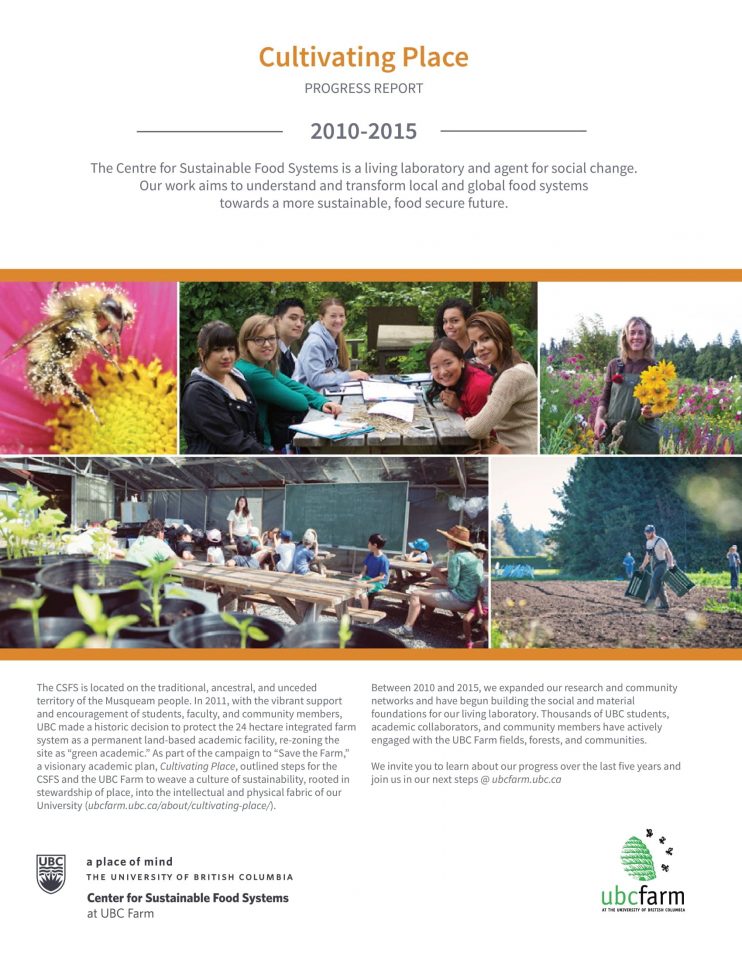About Us
We seek to create resilient, thriving, and socially just food systems for all.
The Centre for Sustainable Food Systems at UBC Farm (CSFS) is a teaching and research centre that builds community and design, facilitates and models sustainable food systems.
Our living laboratory is committed to finding solutions to local and global challenges facing food systems sustainability.
The Centre for Sustainable Food Systems
The Centre for Sustainable Food Systems (CSFS) comprises the research, teaching and cultivation activities at the UBC Farm, as well as sustainable food systems research and teaching that takes place across UBC campus, British Columbia, Canada, and around the globe. CSFS associate members work on the development of innovations in agroecosystem management for food security and ecosystem services, while honouring, respecting, and protecting diverse ecosystems and knowledge pathways within Indigenous and agrarian food systems.
Housed under the Faculty of Land and Food Systems, the UBC Farm has thrived since 2001 thanks to the UBC students, faculty and staff who worked tirelessly to demonstrate the need for a dedicated site for food systems learning, research, and food cultivation at UBC. The CSFS was established in 2011 to further this aim as the academic home for the UBC Farm, with a vision to spur innovation from field to fork to achieve resilient, thriving, and socially just food systems for all. The CSFS supports collaborative research, teaching and learning opportunities for UBC students, faculty, and staff as well as local and international academic and community partners.
The UBC Farm
The UBC Farm is the Centre for Sustainable Food System’s main research, teaching and learning space, located on the traditional, ancestral, and unceded territory of the hən̓q̓əmin̓əm̓-speaking xʷməθkʷəy̓əm (Musqueam) people.
Situated within a 90-year-old coastal hemlock forest, the 24-hectare UBC Farm was started by students in 2001 and since then our integrated organic farm and forest ecosystem has become a key part of UBC’s agroecology research and education as well as an important Vancouver food hub. The UBC Farm features cultivated annual crop fields, perennial hedgerows and orchards, pasture, Indigenous-led gardens, and forest stands.
The Farm is organically managed, and UBC Farm produce is certified organic through NOOA. We cultivate over 200 varieties of fruits, vegetables, and herbs, and also feature honey beehives.
Our History
To find out more about food systems learning at UBC and the story of the UBC Farm visit our History page and check out our two-episode podcast, Growing a Farm: The 20-year Journey of the UBC Farm to hear the voices of the people who started the UBC Farm and – ultimately – saved and protected it development.
Challenges and Opportunities
Our food system is in a moment of critical opportunity given the current global challenges of food insecurity, climate breakdown, biodiversity loss and inequity, and the need for truth and reconciliation with Indigenous communities. We do not have all the answers about how to emerge from these complex challenges, but we feel clear about the importance of places like the UBC Farm and the networks of supporters and changemakers that constitute the CSFS.
The CSFS is uniquely positioned to bring together students, faculty, and staff from across a globally renowned university and connect them to networks of farmers, policymakers, and local and Indigenous communities to develop solutions grounded by our connection to the land at the UBC Farm.
Our Vision and Values
Our Vision, Mission, Values, and Impact
Our Vision
Resilient, thriving, and socially just food systems for all.
Our Mission
To design, facilitate and model food system change through innovative research, place-based learning, knowledge mobilization, community building and stewardship of the UBC Farm.
Our Impact Goals
We aim to have an impact in four key areas: food security, climate, biodiversity, and decolonization.
Our Guiding Values
Long-Term Thinking
We consider the mixed legacies of past generations and the needs of future generations, keeping us accountable as we work to make the urgent changes needed today.
Land Stewardship
We see our role as shared caretakers of the land and recognize our interdependence with all species and people.
Collaborative Leadership
Working with a diversity of partners will help achieve the impact we want to see in the world.
Who do we aim to impact?
The campus community, growers, and learners.
Decolonization and Equity
Our Commitment to Decolonization and Justice, Equity, Diversity and Inclusion
The UBC Indigenous Strategic Plan
We recognize that we and UBC have much work to do in the area of anticolonial advancement. To that end, we will support our Indigenous partners with an intention to be allies and draw on existing Indigenous action frameworks, including the UBC Indigenous Strategic Plan (ISP) in what we do.
Equity Statement
As a member of the Sustainable Agriculture Education Association (SAEA), we support and subscribe to the SAEA’s Equity Statement.
“The Sustainable Agriculture Education Association (SAEA) affirms, above all, that food systems sustainability requires the realization of equity and justice. It works to support the principles of equality, dignity, and fairness rooted in the Universal Declaration of Human Rights of the United Nations. We share these values with the Inter-Institutional Network for Food, Agriculture, and Sustainability (INFAS) network, whose Statement on Equity in the Food System many of our members helped compose. The INFAS statement recognizes the environmental, social, and economic dimensions of sustainability. It places an explicit focus on dismantling structural racism in food systems, and on challenging the multiple forms of oppression — class, race, gender, nationality, among others — that serve as interrelated barriers to equity.”
Strategic Plan
Our Strategic Plan 2024-2029
Our new Strategic Plan has launched and our Actions Plans are underway. Learn more about the five-year plan and how you can help us meet our ambitious targets.




